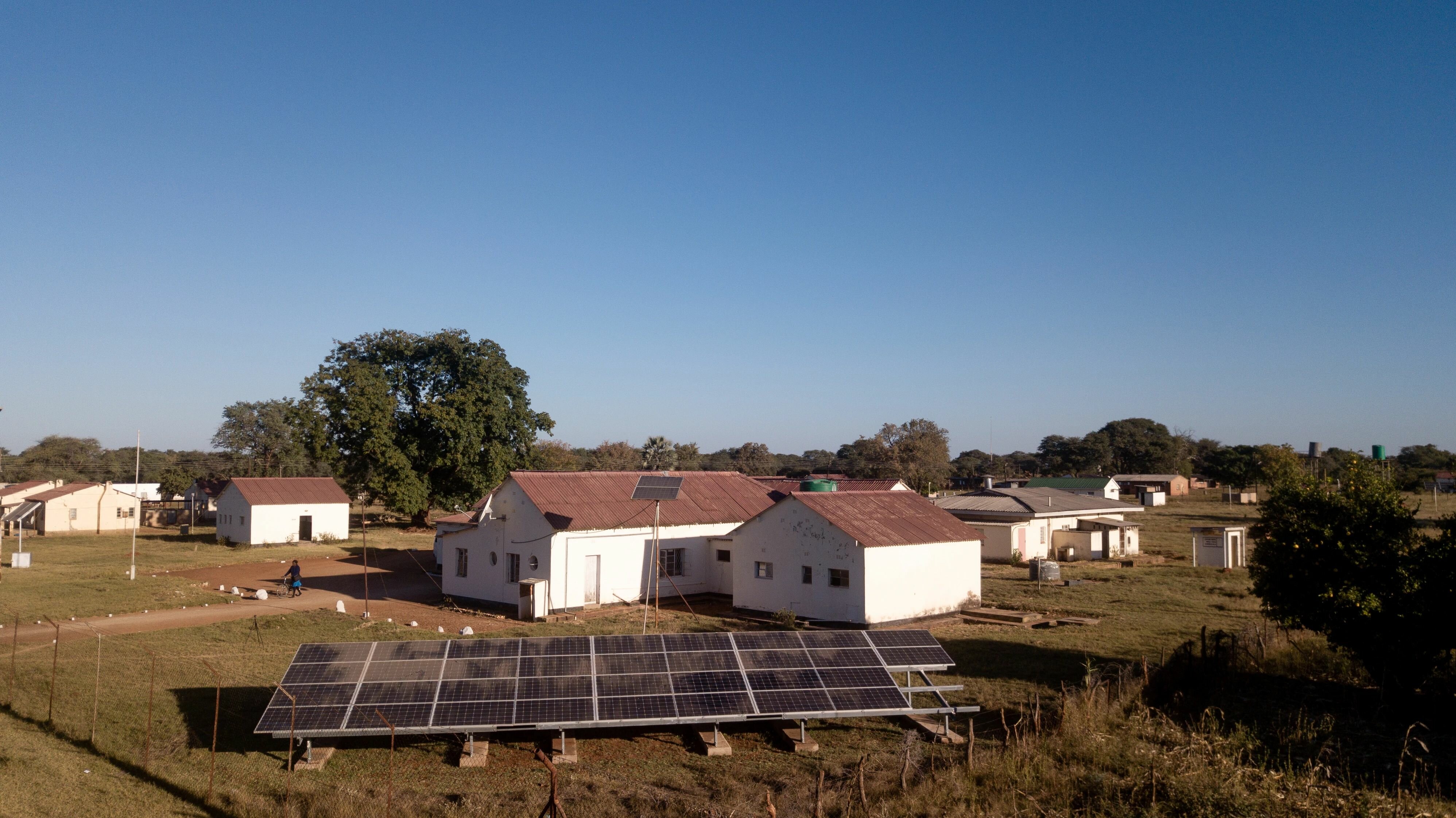Reimagining governance for a just energy transition
Originally published on 4 May 2024 by UNDP | Author: Piyush Verma, Senior Governance Expert-Energy, UNDP

Solar panels power a health clinic in rural Zimbabwe. Photo: UNDP Zimbabwe
“The climate bomb is ticking.” - UN Secretary-General António Guterres during the launch of the recent Synthesis Report of the Intergovernmental Panel on Climate Change.
Climate change is the most pressing issue of our time. It’s having devastating impacts on the environment, society, and the global economy. The urgent need to transition towards a sustainable, low-carbon energy future is at the heart of the challenge. However this requires technological innovation, investment and robust energy governance frameworks that can effectively steer the transition toward clean energy sources while ensuring energy security and affordability for all.
Urgency is paramount. Rising global temperatures, sea level rise, extreme weather, and other consequences of climate change are already causing significant damage to our environment, economy, and public health. According to a 20-year study from Monash University, nearly five million deaths occur each year due to extreme weather.
There is abundant evidence to support the role of renewable energy in addressing the climate crisis and its potential to bring various social, economic, health, and national security benefits. However, continuing business as usual and implementing siloed initiatives will lead us nowhere. The challenges we face are systemic, and acute. We must take a holistic and integrated approach. This requires a concerted effort from governments, businesses, communities, and individuals.
Electrifying every sector, improving energy efficiency, introducing energy system flexibility, and changing people's behaviours are vital. Other policy areas are also at stake, including health, education, poverty and inequality, building, agriculture, transport, long-term economic development, and many more.
Three critical governance approaches are needed to accelerate the shift to renewable energy:
First, it is essential to integrate systemic thinking in all energy planning and to pay attention to complex and intersecting challenges. For example, a strong health-energy nexus is exemplified by UNDP’s work to improve access to clean cooking, a game changer for billions of women and children exposed to harmful gas. UNDP is equipping rural health centres with solar PV systems in 15 countries to enable quality healthcare for the world's poorest. Another example from UNDP is the integrated urban-energy planning approach to promote low-carbon transport, such as bicycles or e-buses, to make cities more sustainable.
Bringing such systematic thinking to planning will only happen when collaborative efforts are unlocked, and institutions, relationships, and processes are mobilized to make the system work effectively and equitably at every level of governance.
Second, governments should provide facilitative coordination by framing the urgency and calling for collective action. Government leadership must also demonstrate strong collaboration between institutions.
Under its NDC support programme, UNDP assisted the Ministry of Finance and the Budget Office (Dirección de Presupuestos, or DIPRES) in Chile to use data to inform decision-making related to public spending on climate change-related programmes. UNDP also coordinated the identification of adaptation and mitigation initiatives across different ministries, including public works, agriculture, and energy.
Government is not the only centre of power. We live in a system with many sources of influence, and governance must take a multi-stakeholder approach and ensure all policy decisions reflect broader positions. Policies and regulations must create an enabling environment where research, innovations, experimentation, and implementation can happen rapidly.
Lastly, society-wide action is needed to engage all stakeholders, including the private sector, civil society, individuals, families, communities, academia, media, and other voluntary associations, to understand the urgency of the shared responsibility.
Communities need to be empowered to understand, deliberate, decide, and participate in the production, distribution, storage, and use of energy, adopt low-carbon products, and change their behaviour. Many citizens worldwide are already cognizant of the challenge and need direction. UNDP found this true in Kyrgyzstan, where an appeal to exchange incandescent bulbs for domestically-produced LED lamps drew 250 responses in a single day. The campaign, organized as part of the “Together Brighter-Kyrgyzstan!” campaign, mobilized a broad spectrum of people and organizations to promote energy efficiency and conservation.
In this society-wide mobilization process, the voices of the vulnerable and marginalized need to be promoted and respected. In Nepal, UNDP’s Renewable Energy for Rural Livelihood (RERL) project encourages women’s participation in decision-making. One notable result is that the executive committees of solar mini-grids and mini-hydro projects have 35 percent women representatives. Creating collaborative leadership and deliberation spaces will be critical for creating an effective governance system that can respond to complex and urgent energy challenges in an inclusive manner.
In light of the urgent need to address the challenges posed by climate change, we must focus our attention on effective energy governance. As we have seen, the current state of affairs is simply unsustainable, and it is our collective responsibility to take action. Strong government leadership is essential, as is coherent policymaking. Equally important is accountability for our actions and a commitment to protecting both our people and our planet. By working together to develop and implement effective energy governance strategies, we can ensure a brighter and more sustainable future for ourselves and future generations.
As the UN Secretary-General has said, “We don’t have a moment to lose.”
Retrieved from undp.org/blog/reimagining-governance-just-energy-transition
